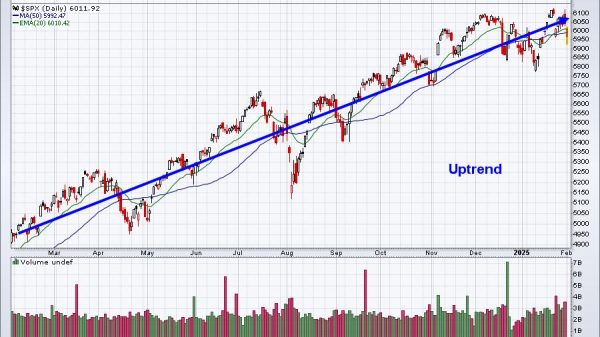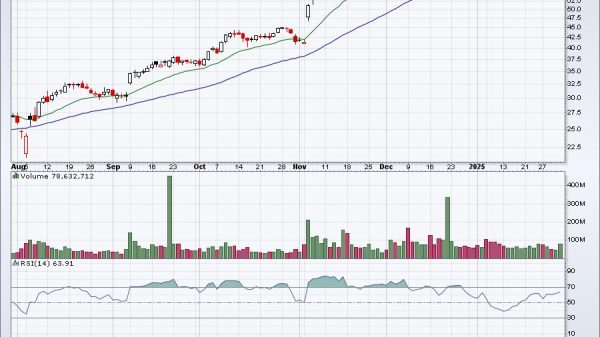London’s work culture is undergoing a significant transformation, and it’s not just about where people work—it’s about how they work.
The city’s fast-paced, competitive environment has long been associated with long hours, high stress, and an “always-on” mentality.
But recent shifts, accelerated by the pandemic 5 years ago, are reshaping the way Londoners approach work and health.
From flexible working arrangements to a growing focus on mental health, the city’s work culture is profoundly influencing health habits.
Let’s dive into how these changes unfold and what they mean for London’s workforce.
The Current State of London’s Work Culture
London’s reputation as a global financial powerhouse comes with intense workplace demands.
Around 400,000 people work in the City of London alone, contributing 3.7% of the UK’s total economic output.
But this success has historically come at a personal cost.
In fact, occupational health clinics offering full blood tests in London have reported a significant increase in stress-related health issues among city workers over the past decade.
The “Always-On” Culture: A Threat to Well-Being
London’s work culture has long been characterized by an “always-on” mentality, where employees feel pressured to be available around the clock.
This trend has only intensified with the rise of remote working, as technology makes it easier to stay connected—but harder to switch off.
The Toll on Mental Health:
Anxiety and Burnout: A Ciphr survey of 2,000 nationally representative UK adults found that 86% of employees experienced anxiety due to work pressure, with many struggling to disconnect from their devices. The constant need to be “on” can lead to burnout, a state of emotional, physical, and mental exhaustion.
Presenteeism: Even when employees are unwell, many feel compelled to work. A 2020 CIPD survey revealed that 87% of respondents observed presenteeism in their workplaces, with employees working through illness or fatigue to prove their commitment.
The Impact on Physical Health:
Sedentary Lifestyles: Long hours at a desk, whether in the office or at home, can lead to a sedentary lifestyle. A 2018 study published in the International Journal of Environmental Research and Public Health found that 81% of office workers had habits of being inactive during work hours, contributing to issues like obesity and musculoskeletal problems.
Poor Sleep: The pressure to stay connected can disrupt sleep patterns. The same Ciphr survey found that 86% of employees struggled with sleep due to work-related stress.
Employers must take proactive steps to combat the “always-on” culture.
This includes setting clear boundaries around work hours, encouraging regular breaks, and promoting a culture of trust where employees feel empowered to disconnect.
For employees, it’s about prioritizing self-care and recognizing the signs of burnout before it takes a toll.
The Shift Toward Wellbeing-Focused Workplaces
The way London companies think about employee health has changed dramatically in recent years.
Let’s look at how organizations are putting their people’s well-being first through various initiatives and support systems.
Mental Health Takes Center Stage
Gone are the days when mental health was a taboo topic in London offices.
Companies have realized that supporting their employees’ mental well-being isn’t just good for people – it’s good for business, too.
A recent study found that only 43% of organizations regularly focused on wellbeing initiatives in the past, and more than half didn’t even train their managers on how to help employees maintain a healthy work-life balance.
But things are changing fast.
Today, if you work for a large London firm, you’ll likely have access to an Employee Assistance Program (EAP). This confidential counseling service helps you deal with personal and work-related issues.
In fact, a 2023 CIPD report found that 84% of organizations now offer EAPs, up from 74% in 2022.
Here’s what else companies are doing to support mental health:
Training employees to become “mental health champions” who can spot signs of stress and guide colleagues to proper help
Running workshops on building resilience (your ability to bounce back from challenges)
Offering stress management courses
Providing flexible work hours so you can better manage your personal life
Regular check-ins with managers about wellbeing, not just work tasks
Physical Health Initiatives
The focus on health goes beyond the mind. Companies understand that physical well-being is equally important, especially given how much time we spend at our desks.
Most London offices now provide ergonomic assessments – this means an expert will look at your desk setup and adjust it to prevent back pain and other health issues.
If you do develop any physical problems, many companies offer fast-track physiotherapy so you can get treatment quickly without long waiting times.
Other physical health benefits you might find in modern London workplaces:
On-site gyms or subsidized memberships to local fitness centers
Healthy food options in the office cafeteria
Regular health screenings and medical checks
Standing desks and other ergonomic equipment
Cycle-to-work schemes and facilities for cyclists
Organizations are also getting creative with health promotion. Some companies organize step challenges, running clubs, or yoga classes during lunch breaks.
Others bring in nutritionists to give talks about healthy eating or set up meditation rooms for quiet breaks during busy days.
This shift toward comprehensive health support shows that London businesses are finally understanding that healthy employees are happier, more productive, and more likely to stay with their company long-term.
It’s a win-win situation where both the company and its people benefit from these positive changes.
Remember, if you’re working in London, you likely have access to many of these benefits – don’t hesitate to ask your HR department about what’s available.
Taking advantage of these programs isn’t a sign of weakness; it’s smart self-care in today’s demanding work environment.
The Rise of Hybrid Working
Hybrid working—splitting time between the office and home—has become the new norm for many Londoners.
According to a 2022 survey by King’s College London, 61% of London workers now work in a hybrid model, up from just 37% before the pandemic.
This shift has brought both benefits and challenges to health habits.
The Benefits of Hybrid Working:
Reduced Commuting Stress: Avoiding the daily grind of London’s crowded tubes and buses is a major win for mental health. 80% of hybrid workers cite avoiding commuting as the top benefit of working from home. Less time spent traveling means more time for exercise, cooking healthy meals, or simply relaxing.
Better Work-Life Balance: Hybrid working allows employees to better manage personal responsibilities, such as childcare or doctor’s appointments. This flexibility can reduce stress and improve overall well-being.
Increased Physical Activity: Without the need to rush to the office, many workers have found time to incorporate exercise into their daily routines. Whether it’s a morning jog or a midday yoga session, hybrid working has made it easier to stay active.
The Challenges of Hybrid Working:
Blurred Boundaries: While hybrid working offers flexibility, it can also blur the lines between work and personal life. A 2020 survey by Robert Half found that 45% of UK employees were working longer hours during the pandemic, often due to the difficulty of “switching off” at home.
Isolation and Mental Health Struggles: Working from home can be lonely, especially for those who like social interaction. A 2021 study by the Chartered Institute of Personnel and Development (CIPD) revealed that 76% of employees experienced stress-related absence, with isolation and overwork being key contributors.
Tech Fatigue: Constant video calls and digital communication can lead to burnout. A Microsoft UK report found that 86% of employees experienced anxiety due to work pressure, with many struggling to disconnect from their devices.
Hybrid working is here to stay, but its impact on health habits depends on how well employees and employers manage its challenges.
For many, it’s a balancing act between reaping the benefits and avoiding the pitfalls.
The Business Case for Health
The numbers make it clear: investing in employee health directly impacts a company’s bottom line.
Let’s look at the real costs and benefits:
The Financial Impact
Sickness absence costs UK businesses approximately £100 billion annually – that’s not just statistics, it’s lost productivity and opportunities.
For perspective, the average London firm of 250 employees loses £250,000 yearly (£4,800 per week) due to sickness.
This includes both direct costs like sick pay and indirect costs like temporary staff coverage.
Return on Wellness Investment
Companies investing in comprehensive health programs are seeing measurable returns through:
Staff and Performance Benefits:
Lower staff turnover: Significant reduction in employee departures
Higher productivity: Employees report being more focused and efficient
Improved employee engagement: Better team collaboration and workplace satisfaction
Enhanced talent attraction: Wellness programs are now a top factor for job seekers
Stronger company reputation: Both internally and in the wider business community
Best Practices Emerging in London Workplaces
Want to know what the most forward-thinking London companies are doing to keep their employees healthy and happy?
Let’s explore the innovative approaches that are setting new standards across the city.
Comprehensive Health Programs
Modern London workplaces are moving away from one-size-fits-all solutions.
Instead, they’re creating programs that consider health a complete picture, from physical fitness to mental well-being and social connections.
Physical Health Support: The foundation of workplace wellbeing starts with your body. Companies offer regular health assessments where medical professionals check everything from blood pressure to fitness levels. You’ll also find ergonomic specialists visiting offices to make sure your desk setup isn’t causing you back pain or neck strain. Many firms have gone beyond basic gym memberships – they’re bringing exercise classes right into the office and creating dedicated wellness spaces where you can stretch or meditate during breaks.
Mental Wellbeing Resources: You’ll typically have access to confidential counseling through Employee Assistance Programs, where you can discuss anything from work stress to personal challenges. Regular workshops teach you practical stress management techniques, while mindfulness sessions help you stay focused and calm during busy periods.
Social Connection Initiatives: Companies have realized that feeling connected to your colleagues makes a huge difference in how you feel about work. That’s why they’re creating structured programs to help build meaningful workplace relationships:
Mentor Matching: Pairs you with experienced colleagues who can guide your career development
Interest Groups: From book clubs to running teams, these help you connect with coworkers who share your passions
Community Projects: Organized volunteering opportunities that let you make a difference while building team bonds
Social Events: Regular gatherings that help you get to know colleagues outside of work meetings
Management Approach
Today’s London managers are being trained to be more than just taskmasters – they’re becoming well-being advocates.
Here’s how this new approach is changing your workplace experience:
Leadership Training: Your manager is likely receiving specialized training to spot early signs of stress or burnout. They’re learning how to have meaningful conversations about wellbeing and create an environment where you feel comfortable discussing personal challenges.
Flexible Work Champions: Modern managers understand that different people work best in different ways. They’re being trained to:
Support hybrid working arrangements that suit your personal circumstances
Help you set healthy boundaries between work and home life
Ensure you’re not feeling pressured to be “always on”
Cultural Change Leaders: The most effective managers are those who lead by example. They’re encouraged to:
Take regular breaks and vacation time to show it’s okay to disconnect
Share their own well-being experiences to normalize these conversations
Actively participate in wellness programs to demonstrate their importance
Create team-specific wellbeing goals and celebrate when they’re achieved
When you feel supported by your manager and organization, you’re more likely to do your best work and stay with the company longer.
The Future of Work and Health in London
Here are the key trends shaping how you’ll experience workplace wellness in the coming years:
Prevention First: Gone are the days of only addressing health issues after they become problems. Your workplace will likely start offering proactive health monitoring, similar to having a personal health coach at work. This means regular check-ups and early warning systems that can spot potential health issues before they affect your well-being. You’ll also see more stress risk assessments – regular “health MOTs” for your work life.
Smart Tech Integration: Your workplace wellness is going digital. Instead of traditional one-size-fits-all programs, you can access personalized digital platforms to track your health goals and progress. This includes everything from virtual fitness classes you can join from anywhere to mental health apps that provide support exactly when you need it. These tools will help you monitor your health metrics (like stress levels or activity patterns) in real time, making it easier to maintain a healthy work-life balance.
Made Just for You: The future of workplace health is all about personalization. Rather than following generic wellness programs, you’ll get a health plan tailored specifically to your needs and goals. This includes flexible benefits packages where you can choose what matters most to you – extra mental health support, physical fitness programs, or work arrangement flexibility. You’ll also have access to personal health coaching.
Conclusion
London’s work culture is undergoing a fundamental shift from a performance-at-all-costs mentality to a more sustainable, health-conscious approach.
This transformation isn’t just about implementing new programs – it’s about creating a culture where well-being is central to how organizations operate.
The challenge now lies in maintaining this momentum and ensuring these changes become permanently embedded in London’s work culture.
As organizations continue to adapt and evolve, the focus on employee health and well-being looks set to become an increasingly important differentiator in London’s business environment.
The message is clear: healthy employees create healthy businesses, and London’s future success depends on getting this balance right!
Read more:
How London’s Work Culture is Changing Health Habits






















